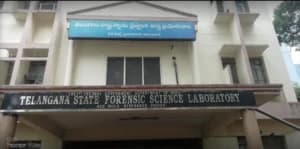In a significant development concerning road safety and public infrastructure, the Supreme Court of India has issued firm directions to the Central Government and Highway Administration to remove encroachments on National Highways and ensure public safety. The Court observed that the implementation of the Control of National Highways (Land and Traffic) Act, 2002 has been largely ineffective.
The matter was heard by a bench comprising Justice Abhay S Oka and Justice Augustine George Masih, which passed directions in a writ petition related to highway safety and enforcement of the 2002 Act and the Highway Administration Rules, 2004.
Read also: Arrest of Prof. Ali Khan Mahmudabad: A Case of Misuse of Power and Constitutional Concerns
“Under the 2002 Act, Section 23 clearly states that highway land is deemed the property of the Central Government. Thus, the Central Government is obligated to maintain highways in good condition and keep them free from encroachments,” the Court noted.
The petitioner, Gyan Prakash, cited the Road Accidents in India – 2017 report, highlighting that 53,181 people died on Indian highways in one year alone, blaming poor enforcement of safety regulations for the staggering figures.
The Supreme Court emphasized that maintaining highways includes keeping them encroachment-free and implementing safety measures. The Court referred to several provisions under the 2002 Act:
- Section 3: Authorizes the Central Government to set up Highway Administrations.
- Sections 24 and 26: Deal with preventing and removing unauthorised occupations. While Sections 26(2)–(6) ensure a fair notice-based removal process, Sections 26(7) and (8) allow immediate action in urgent cases.
Read also: CJI BR Gavai Urges Bar Associations to Support Young Lawyers with CSR-Funded Group Insurance
The Court reminded that the Central Government’s responsibility also arises under the National Highways Act, 1956.
Although the “Rajmargyatra” mobile app allows citizens to report encroachments and unsafe conditions, the Court noted issues with its complaint resolution and feedback system.
“There is no clarity if encroachment complaints through the app are acted upon or not,” observed the bench.
The NHAI is currently revamping the app and developing a dedicated complaint redressal portal. However, the Court insisted that citizens must be able to track complaints and file appeals effectively.
Amicus Curiae Swati Ghildiyal, in her report dated October 5, 2024, suggested:
- Issuing detailed circulars for highway inspection teams with clear roles and schedules.
- Creating surveillance teams with State Police for highway patrolling.
- Installing CCTV cameras on highways.
- Enhancing the Rajmargyatra app with feedback and tracking features.
Read also: SC Directs Centre To Notify New Rules For Consumer Forum Appointments; Ensures 5-Year Tenur
The Court directed that her suggestions be discussed and implemented after formal meetings with Highway Administration officials.
The bench laid out the following concrete directions to be fulfilled within three months:
- Highway Administration must file an affidavit via Joint Secretary, MoRTH, on steps taken under Rule 3 of the amended 2004 Rules.
- The Rajmargyatra app must be publicized through all media and displayed prominently at toll plazas and food stops.
- MoRTH must detail complaints received via the app and actions taken.
- A detailed SOP for highway inspection teams must be issued.
- The Centre must form surveillance teams with State Police for patrolling.
- Authorities must implement the amicus curiae's suggestions after discussion.
Background & Earlier Orders
Previously, the Court had flagged the lack of mechanisms to detect and address unauthorised highway occupations. Although Highway Administrations were created under the 2002 Act, they were found lacking in regular inspections and complaint handling.
- On February 20, the Court had ordered a formal inspection and redressal scheme.
- On August 27, MoRTH was directed to form inspection teams and set up a toll-free complaint number.
- Compliance was due by September 30.
The next hearing is scheduled for September 15, 2025, where authorities must report compliance.
“The responsibility to keep highways encroachment-free is non-negotiable. Safety on national roads cannot be compromised,” the Supreme Court asserted.
Case no. – Writ Petition (C) No.1272 of 2019
Case Title – Gyan Prakash v. Union of India & Ors.














